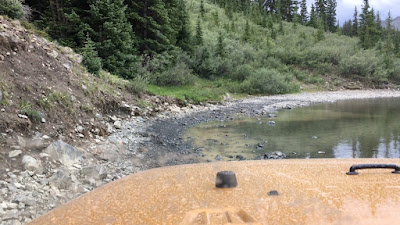In regards to my speculation of whether the CCG market has collapsed, I can assure you, it didn't happen in February. The music continues and I'm not eyeing chairs.
We've seen amazing sales of Pokemon Brilliant Stars. In fact, sales are better than any set before. We've seen collectors come in to buy multiple cases at a time at full MSRP. We've sold over 100 boxes in the last week, which is pretty amazing for us and we have half our supply in reserve. Inventory of a couple older sets are alarmingly high, but they're moving along slowly. Overall store inventory should stabilize in the next couple of days, after spiking once again with new releases.
Magic the Gathering: Kamigawa Neon has also done well, and back at a more predictable level. Magic has traditionally been steady for us, both in sales and supply. That tends to engender a bit of indifference. If something is easy to get and sells at a predictable level, regardless of your efforts, it goes on auto pilot. Magic has been anything but predictable during the last two years, and we still suffer from overstock of some of those sets. I predicted moderate sales of Neon, ordered a moderate amount, and have sold a moderate amount. It's a welcome yawn, from a buyers standpoint. I should mention successful stores regularly stock deep of sets with no concern for overstock. Having these reserves is a luxury I'm unfamiliar with. There is no Magic set that doesn't sell (eventually).
When I talk like this, let me assure you it's my supplier voice. I handed events to my manager in 2007 (5 managers ago) and haven't been much of an event cheerleader, and CCGs are about excitement and events. That's another department. As a buyer, I've decided to skip another year of the GAMA Trade Show. I was planning to go, but I'm going to pass one more time due to COVID concerns. I'm also hoping to conserve store cash. 2021 was about capital improvements and buys, while 2022 will hopefully be a conservative year where we pay off the remaining government debt.
My primary concern, in February, our second best month on record after December, is the inability to control expanding inventory. In boom times, which we're experiencing, it's a lesser concern, especially with large cash reserves. As I draw down my reserves to pay back my government loan, I'm painfully aware of five figure invoices approaching. The money is good, but the risk has increased. Cash flow reports are now more important. We're down to days instead of weeks, although we just paid off some giant expenses (taxes).
Is this a winner take all trade? My success pales in comparison to some of my peers, who have their larger stores even better dialed in. There are likely still stores cut off from supply and struggling. There are a large number of stores likely to close in 2022. Is it because of supply issues or something else? I think it's mostly about capital. Not starting with enough of it, not knowing how to manage it, not understanding how to leverage it, being too proud to acquire it. This is a trade where you don't have to be big, but you must be clever. It's an information poor environment and those who can get intelligence on what's happening are winning. If you sit in your silo and don't answer the phone, you'll be left out.
My job, the one I have at home, is more about managing capital than knowing how to sell games, but that's a modern development. I did my time on the sales floor and I wouldn't mind terribly going back for a while, by choice. I don't know where I would be without developing strong credit terms, having big buckets of credit card reserves and of course, that EIDL cash reserve, which I expect to pay off by the end of the year. I can tell you I've been poor, with days of cash flow and unsure if I can make payroll (I bounced it once). I've been cash rich of late as well. As you can imagine, I prefer operating in that rich environment. The stress of being cash poor is just too much.


